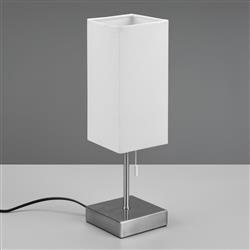Optimised LED Bulbs Boost Concentration, According to Study
Posted By: Matthew
Most people can attest to feeling more awake after opening their curtains in the morning to let the sunlight in. Natural light cues diurnal animals to wake up after a night’s sleep and makes them feel more alert and more energised. Switching on indoor lights in homes, offices and classrooms at certain times during the day can have a similar effect, giving people a new lease of life during periods when their energy levels may be lagging. This is one of the reasons why it is important to ensure that you always have lighting that is appropriate to the task you are trying to carry out. For example, it would be inadequate for a student to sit an exam with only a table lamp for light or for a professional make-up artist to apply a model’s make-up with the aid of a kitchen spotlight.
Although, the effect of light on human biology is well documented and may seem obvious in these scientifically enlightened times
New research suggests that the manipulation of light can significantly affect human cognitive performance. The study, carried out in Ulm, Germany by the ZNL TransferZentrum für Neurowissenschaften und Lernen (Transfer Centre for Neuroscience and Learning) in conjunction with lighting manufacturer Osram between November 2011 and February 2012, demonstrated that artificial lighting designed to simulate daylight had the ability to boost concentration and enhance cognitive performance in students. The so-called “biologically-optimised” lights that were used in the study were made by combining blue and white light-emitting diode (LED) lamps.
The results of the study showed that students working under the biologically-optimised bulbs achieved superior results and performed faster than the control group in standardised tests for concentration ability. The study was carried out at the Ferdinand von Steinbeiss School and the Robert Bosch School in Ulm and tested 17 to 20 year old students attending classes both in a classroom fitted with conventional lighting and with enhanced lighting. During the study, the students were repeatedly tested in various standardised performance and concentration tests and the results of the tests taken under the biologically-optimised lighting were compared with the results of the tests taken under conventional lighting.
According to Innovation Manger at Osram, Hannah Helbig, an artificial “sky” was created in the enhanced classrooms using strips of white and blue LED lights that could be controlled independently of each other, replicating the colour temperature of the sky inside the building.
According to researchers, the special lighting stimulates the body as though the person were outdoors
Apparently causing students to become more alert earlier in the day. Both students and teachers reported benefiting from the new lighting system, prompting researchers to ponder the possibility of rolling out the system to classroom beyond the study.
Although, we will have to wait and see, it is impossible not to wonder at how lighting may be enhanced for biological and social benefit in the future. Perhaps, one day, even our home lighting will be biologically manipulated to help us to concentrate and think more clearly.
http://www.netdoctor.co.uk/.../how-light-affects-your-health/


